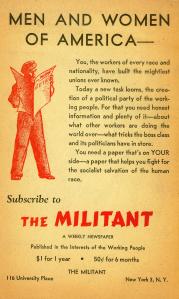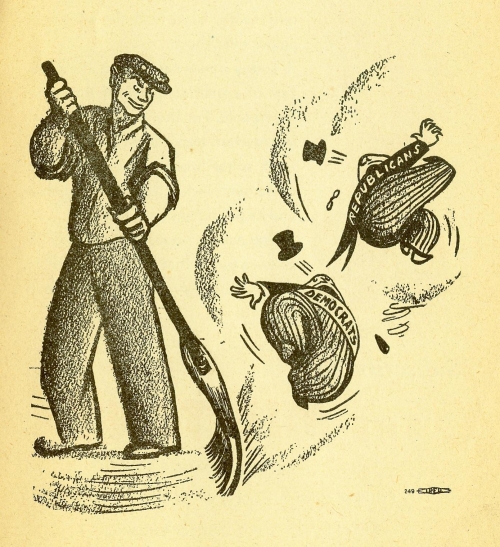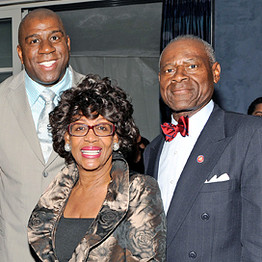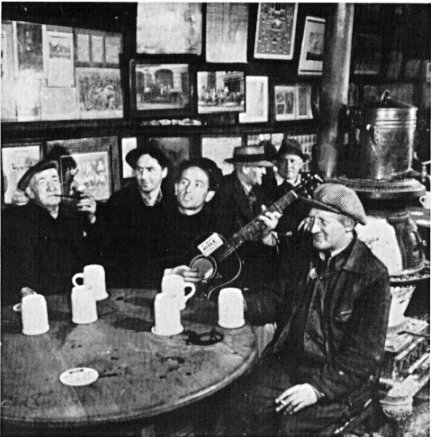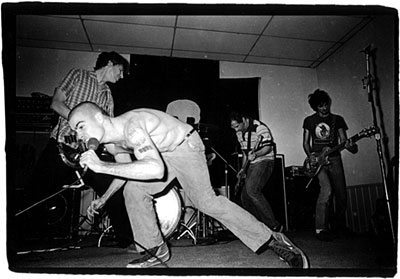Over the last few years, we have all witnessed the decline of the music business, highlighted by finger-pointing and blame directed against record companies, artists, internet file sharing and any other theories for which a case could be made.
from The Huffington Post
by John Mellencamp
We’ve read and heard about the “good old days” and how things used to be. People remember when music existed as an art that motivated social movements. Artists and their music flourished in back alleys, taverns and barns until, in some cases, a popular groundswell propelled it far and wide. These days, that possibility no longer seems to exist. After 35 years as an artist in the recording business, I feel somehow compelled, not inspired, to stand up for our fellow artists and tell that side of the story as I perceive it. Had the industry not been decimated by a lack of vision caused by corporate bean counters obsessed with the bottom line, musicians would have been able to stick with creating music rather than trying to market it as well.

john mellencamp with vintage 0000 martin (?)
During the late 80s and early 90s the industry underwent a transformation and restructured, catalyzed by three distinct factors. Record companies no longer viewed themselves as conduits for music, but as functions of the manipulations of Wall Street. Companies were acquired, conglomerated, bought and sold; public stock offerings ensued, shareholders met. At this very same time, new Nielsen monitoring systems — BDS (Broadcast Data Systems) and SoundScan were employed to document record sales and radio airplay. Prior to 1991, the Billboard charts were done by manual research; radio stations and record stores across the country were polled to determine what was on their playlists and what the big sellers were. Thus, giving Oklahoma City, for example, an equivalent voice to Chicago’s in terms of potential impact on the music scene. BDS keeps track of gross impressions through an encoded system that counts the number of plays or “spins” that a song receives. That number is, thereafter, multiplied by the number of potential listeners. SoundScan was put in place at retail centers to track sales by monitoring scanned barcodes of units crossing the counter. A formula was devised whereby the charts were based 20% on the SoundScan number and 80% on BDS results. The system had changed from one that measured popularity to one that was driven by population.
Record companies soon discovered that because of BDS, they only needed to concentrate on about 12 radio stations; there was no longer a business rationale for working secondary markets that were soon forgotten — despite the fact that these were the very places where rock and roll was born and thrived. Why pay attention to Louisville — worth a comparatively few potential listeners — when the same one spin in New York, Los Angeles or Atlanta, etc., was worth so many more potential listeners? All of a sudden there were #1 records that few of us had ever heard of. At the time we asked ourselves, “Am I out of touch?” We didn’t realize that this was the start of change that would grow to kill, if not the whole of the music business, then most certainly, the record companies.
Reagan’s much-vaunted trickle-down theory said that wealth tricked down to the masses from the elite at the top. Now we’ve found out that this is patently untrue — the current economic collapse reflects this self-serving folly. The same holds for music. It doesn’t trickle down; it percolates up from the artists, from word of mouth, from the streets and rises up to the general populace. Constrained by the workings of SoundScan/BDS, music now came from the top and was rammed down people’s throats.
Early in my career, I wrote and recorded a song called “I Need A Lover” that was only played on just one radio station in Washington, DC the first week it came out. Through much work from local radio reps at the record company, the song ended up on thousands of radio stations. Sing the chorus of “I Need A Lover.” It’s not the best song I ever wrote nor did it achieve more than much more than being a mid-chart hit, but nevertheless, you can sing that chorus. Now sing the chorus of even one Mariah Carey song. Nothing against Mariah, she’s a brilliantly gifted vocalist, but the point here is the way that the songs were built — mine from the ground up, hers from the top down.

john mellencamp with good looking vintage dove.
By 1997, consumers, now long uninvolved, grew passive, radio stations had to change formats. Creative artistry and the artists, themselves, were now of secondary importance, taking a back seat to Wall Street as the record companies were going public. The artists were being sold out by the record companies and forced to figuratively kiss the asses of their corporate overlords at the time these record companies went public. In essence, the artists were no longer the primary concern; only keeping their stockholders fat and happy and “making the quarterly numbers” mattered; the music was an afterthought.
Long-tenured employees of these companies were sacrificed in the name of profitability and the culture of greed was burned into the brains of even the most serious music lovers. It seemed that paying attention sales, who had the #1 record from one week to next, and who fell or rose on the charts was all that validated music.
One of my best friends in life was Timothy White who had been the editor of Crawdaddy, then Rolling Stone and, finally, Billboard. As a music critic, he championed singers, songwriters and musicians of all stripes. He was a music lover, beloved in the industry and by artists. Timothy, as many of you know, died suddenly, at the age of 50, waiting for an elevator at Billboard’s office in New York. Artists including Don Henley, Brian Wilson, Sheryl Crow, James Taylor, Jimmy Buffett, Roger Waters, Sting and me thought so much of him that two sold-out concerts — one in Boston and one at Madison Square Garden — were produced to raise money to support his widow, Judy, and family that includes their autistic son. Each of you, who care enough to read this, should ask yourself if people would be there to celebrate your life so lovingly as this.
In the early 90s, Tim started talking to me about the new service called SoundScan. Then the editor of Billboard, he was leery about the whole idea, realizing its potential to turn the record business upside down. He was pressured by his boss, publisher Howard Lander, who had warned that if Billboard didn’t buy into SoundScan, its competitor, Hits, would become the premier music industry trade magazine. I remember performing at a City of Hope benefit dinner in 1996 where he and I argued with Howard on the pitfalls of SoundScan and BDS and how there would be consequences that would not be good for the music business once it was embraced. It was a very unpleasant evening.
Let’s pause here to note that the record business has always been known for its colorful characters like Colonel Tom Parker, Ahmet Ertegun, John Hammond, etc. The most important thing is that different artists were able to express themselves in ways that were uniquely original, expressing their hopes and disappointments. That kind of artistic diversity and the embrace of eccentricity made the recording business great. It also made the record business horrifying in some ways. Look at what happened at Stax Records where financial finagling and skullduggery brought a great enterprise to a screeching halt that ended so many brilliant careers.
During the time of the upheaval wrought by SoundScan, BDS and the “Wall Streeting” of the industry, country music seized the opportunity and tacitly claimed the traditional music business. Country has come to dominate the heartland of America, a landscape abandoned or ignored by the gatekeepers of rock and pop. Great new country music stars came from seemingly nowhere to grow to tremendous popularity; think Garth Brooks.
While all this was going on, technology, just as it always does, progressed. That which, by all rights, should have had a positive impact for all of us — better sound quality, accessibility, and portability — is now being blamed for many of the ills that beset the music business. The captains of the industry it seemed, proved themselves incapable of having a broader, more long-range view of what this new technology offered. The music business is very complicated in itself so it’s understandable that these additional elements were not dealt with coherently in light of the distractions that abound. Not understanding the possibilities, they ignorantly turned it into a nightmarish situation. The nightmare is the fact that they simply didn’t know how to make it work for us.
The CD, it should be noted, was born out of greed. It was devised to prop up record sales on the expectation of people replenishing their record collections with CDs of albums they had already purchased. They used to call this “planned obsolesce” in the car business. Sound quality was supposed to be one of the big selling points for CDs but, as we know, it wasn’t very good at all. It was just another con, a get-rich-quick scheme, a monumental hoax perpetrated on the music consuming public.

john mellencamp
These days, some people suggest that it is up to the artist to create avenues to sell the music of his own creation. In today’s environment, is it realistic to expect someone to be a songwriter, recording artist, record company and the P.T. Barnum, so to speak, of his own career? Of course not. I’ve always found it amusing that a few people who have never made a record or written a song seem to know so much more about what an artist should be doing than the artist himself. If these pundits know so much, I’d suggest that make their own records and just leave us out of it. Nora Guthrie, Woody’s daughter, once told me a story about a reception she was at where Bob Dylan was in attendance. The business people there were quietly commenting on how unsociable Dylan seemed to them, not what they imagined an encounter with Dylan would be like. When that observation about Dylan’s behavior and disposition were mentioned to Nora, the response was very profound. She said that Bob Dylan was not put on this earth to participate in cocktail chatter with strangers. Bob Dylan’s purpose in life is to write great songs like “Blowin’ in the Wind” and “The Times They Are A’ Changin’.” This sort of sums it all up for me. The artist is here to give the listener the opportunity to dream, a very profound and special gift even if he’s minimally successful. If the artist only entertains you for three and a half minutes, it’s something for which thanks should be given. Consider how enriched all of our lives are made by songs from “Like A Rolling Stone,” a masterpiece, to “The Monster Mash,” a trifle by comparison.
Now that the carnage in this industry is so deep you can hardly wade through it, it’s open season for criticizing artists, present company included, for making a misstep or trying to create new opportunities to reach an audience, i.e., Springsteen releasing an album at Wal-Mart and, yes, we all know what Wal-Mart is about. The old rules and constraints that had governed what was once considered a legitimate artist are no longer valid. When you think about it, you must conclude that there really is no legitimate business; there is no game left.
Sadly, these days, it’s really a matter of “every man for himself.” In terms of possibilities, we are but an echo of what we once were. Of course, the artist does not want to “sell out to The Man.” Left with no real choice except that business model of greed and the bean counting mentality that Reagan propagated and the country embraced, there is only “The Man” to deal with. There is no street for the music to rise up from. There is no time for the music to develop in a natural way that we can all embrace when it ripens and matures. That’s why the general public doesn’t really care. It’s not that the people don’t still love music; of course they do. It’s just the way it is presented to them that ignores their humanity.
If we have any hope for survival of the music that we all love, compassion must replace name-calling, fairness must replace greed and we need to come together as a musical community and try to understand each other’s problems. I once suggested to Don Henley, many years ago after I had left Polygram, that we should form an artist-driven record label, much like Charlie Chaplin did with the movies when he, more than 90 years ago, joined forces with Mary Pickford and Douglas Fairbanks to form United Artists. Don’s response was correct. He said that trying to get artists and business people together to work for the common good of everyone involved is akin to herding cats. When all is said and done, unfortunately, it’s not really about the music or the artist. It’s about you and your perception of yourself and how you think things ought to be. And we all know that this very rarely intersects with what actually is. Just because you think this is how it should be only makes it just that: what you think; it doesn’t make it true. So let’s try to put our best foot forward and remember that anyone can stand in the back of a dark hall and yell obscenities but if you want a better world it starts with you and the things you say and do.
Read Full Post »


